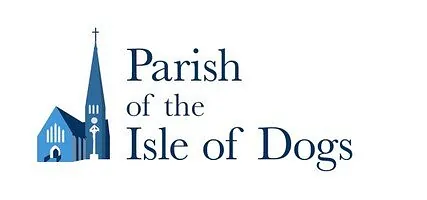07/08/2024 0 Comments
Covid-19 and Care for Creation by Brian Cuthbertson, Head of Environment and Sustainability, Diocese of London
Covid-19 and Care for Creation by Brian Cuthbertson, Head of Environment and Sustainability, Diocese of London
# News

Covid-19 and Care for Creation by Brian Cuthbertson, Head of Environment and Sustainability, Diocese of London
The coronavirus seems to be bringing humanity together as never before, as well as causing much sorrow. This is globalisation writ large!
It’s a truism that we’re all “brothers and sisters under the skin”; but it is a Christian injunction that “my neighbour is the one who needs my help”.
And that we should forgive our brothers seventy times seven times. There can be no room for sniping over who’s to blame. We’re all in the same boat, as to causes as well as consequences and remedies.
The pandemic may have begun in one country, but it spread to all corners of the globe by way of international air travel and shipping. We all take part in this, whether by flying for work or holidays, or by importing consumer goods from where they are made best or most economically.
Now we need to re-visit these habits and choices.
And we need to re-think our attitudes to and relations with Nature – which is God’s Creation. As we have on account of climate change, biodiversity loss and plastic in the ocean. Rightly so, and some of these may well turn out even worse than Covid-19, in the not too distant future.
Yet global pandemics were also highlighted as an environmental risk for years. Somehow we missed this threat (at least I confess that I did). We – I – thought it wouldn’t happen soon, or to us, or so badly. Governments around the world did little to prepare.
Not that the other threats just mentioned have gone away. Though they may have lessened for the time being. Carbon emissions are taking a major dent – if not yet major enough! We need to build on this, not revert back to where we were.
Wildlife is venturing out into the streets again. Animals and birds must surely be asking themselves what’s changed, where have we gone? Well, they should enjoy the respite. God bless them all. They will render praise in return.
The message about how we should relate to Nature is a complex one. On the one hand, we should not separate ourselves off – we too are of the earth. We belong to the animal kingdom, however exalted – or abysmal – our powers, however our destiny may unfold. Yet on the other hand, we should not come too close to wild animals, lest infections should spread via them to us, as is thought to have happened with the coronavirus. And we should not mistreat them in any event. They have their world, their lives, their rights.
There is also the naïve theological question – “Why did God make viruses?” We lack an adequate answer to this. One partial answer is that viruses, or their ancestors or precursors, were present at the making of us! For it seems that by taking up residence within single-celled organisms they contributed to the conditions enabling multi-cellular life to evolve. They may even have helped to configure our faculty of consciousness. The rest is history.
Viruses are everywhere. Many, maybe most, are benign to us. There are said to be thousands in every teaspoonful of seawater, in which we happily bathe. The Lord God – in some sense we do not quite understand – made them all.
So how did some become malignant? Those species that are prone to hosting malignant viruses are more likely to die – their viral load perishing with them – while those that benefit from the good ones may survive and flourish.
Nevertheless our human cultures, eating habits, hygiene and even some medicinal practices give away too many opportunities for dangerous pathogens to take root and spread. Again, let’s blame no-one, rather let’s reflect and learn from the shocking ordeal we are now passing through. Let’s gain from the spiritual as well as physical blessings of so-called ‘social distancing’ – even as we come closer by sharing the old-fashioned customs of social relations in the home, the exchange of letters (albeit by email) with distant friends. Let’s make time and space for hope.



Comments